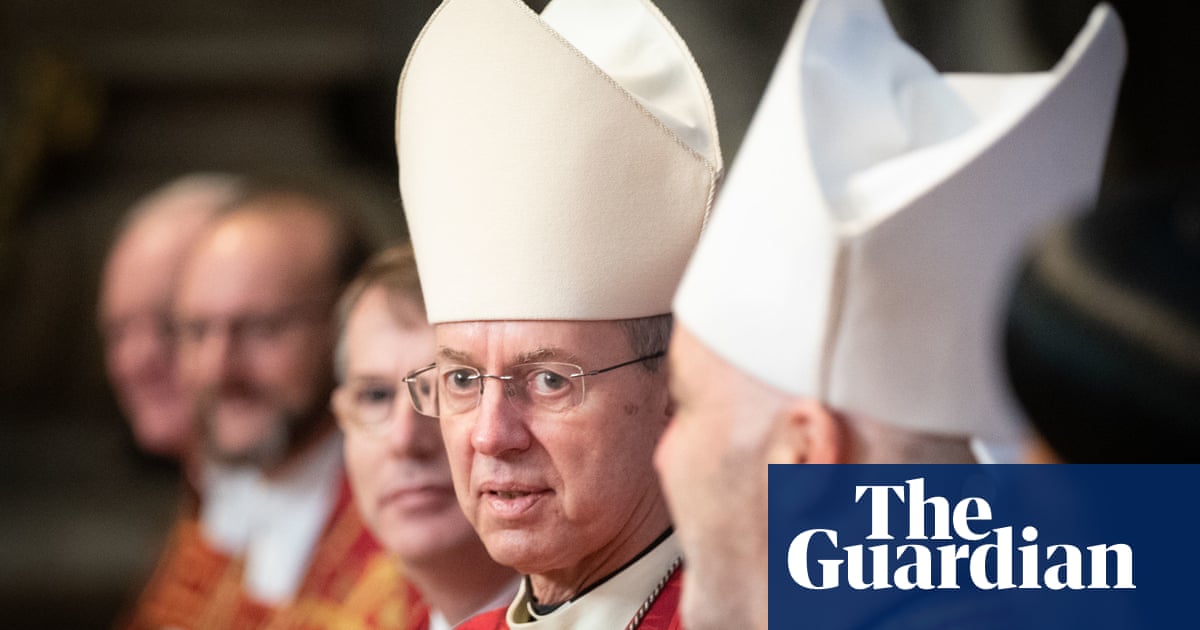A bishop and a cabinet minister have said more senior clergy in the Church of England may need to resign after a damning report into a sadistic abuser.
Julie Conalty, the bishop of Birkenhead and deputy lead bishop for safeguarding, said Justin Welby had “done the right thing” on Tuesday by resigning as archbishop of Canterbury.
Conalty told BBC Radio 4’s Today programme: “Just the archbishop of Canterbury resigning is not going to solve the problem. This is about institutional changes, our culture and a systemic failure so there must be more that we need to do. Very possibly some of the people should go.”
Wes Streeting, the health secretary and a practising Anglican, said it was right that Welby had taken responsibility for the C of E’s failures on abuse.
But, in a warning to other church leaders, he added: “Don’t think one head rolling solves the problem”.
“There are deep and fundamental issues of practice and culture on safeguarding that need to be taken seriously … The culture of cover-up has been part of the problem on serious abuse allegations for far too long,” he told the BBC.
The independent Makin report had said Welby, the spiritual leader of 85 million Anglicans worldwide, was “insufficiently curious” about allegations of abuse by John Smyth, a barrister who ran Christian summer camps in the 1970s and 80s.
Survivors have said that other senior clergy who failed to take effective action when told of Smyth’s abuse should also resign.
The review of the Smyth case names several serving and retired bishops as people who were told of allegations. They include Stephen Conway, the bishop of Lincoln, and formerly the bishop of Ely.
In a statement issued on Tuesday, Conway said he was “deeply sorry” for not “rigorously pursuing” the matter with the archbishop of Canterbury.
He insisted that he did all he could within his authority by making a detailed disclosure to Lambeth Palace, and contacting the diocese in South Africa to which Smith had moved.
“I am clear that I did all within my authority as a bishop of the Church of England, bearing in mind that I had no authority over an entirely independent province on another continent.
“I acknowledge fully that my fault was in not rigorously pursuing Lambeth about that province-to-province communication, and for this I am deeply sorry.”
The independent report said Conway and others had been complacent and that “serious abuse and crimes [were] being covered up at the time”.
Mark Stibbe, a former vicar and survivor of abuse, said senior church figures should step down. Survivors wanted “more resignations because that means more accountability, people taking responsibility for having been silent when they should have spoken,” he told Channel 4 News.
Andrew Morse, another victim of Smyth, said Welby was “just the leader and there are countless other Anglican churchmen who equally bear responsibility”.
after newsletter promotion
Welby had provided “an example for them whether they follow it or not”.
Stephen Cottrell, the archbishop of York, said “some people pretty systematically covered this up, and those people do need to be brought to account”.
However, he declined to be drawn on individuals such as Conway. Those who had actively covered up Smyth’s abuse were not bishops, he said.
Welby had resigned as a way of taking “personal responsibility for institutional failings”, Cottrell told the BBC.
The C of E was taking steps to put effective safeguarding measures in place, but it was “frustrating” that it was taking so long.
Cottrell, who is expected to step up to the top position in the church until a new archbishop of Canterbury is appointed, said: “I now find I have additional responsibilities to change the culture and to change the way the church is safeguarded.”
Conalty also said she could not guarantee the C of E was a safe institution.
“It is frustrating for me because in many ways we have been working really hard at making churches safer places,” she said. “No institution, nothing, can ever be totally safe but there has been loads of really good work going on.
“We still have this institutional problem where we are not putting victims and survivors at the centre. In some ways, we are not a safe institution.”

